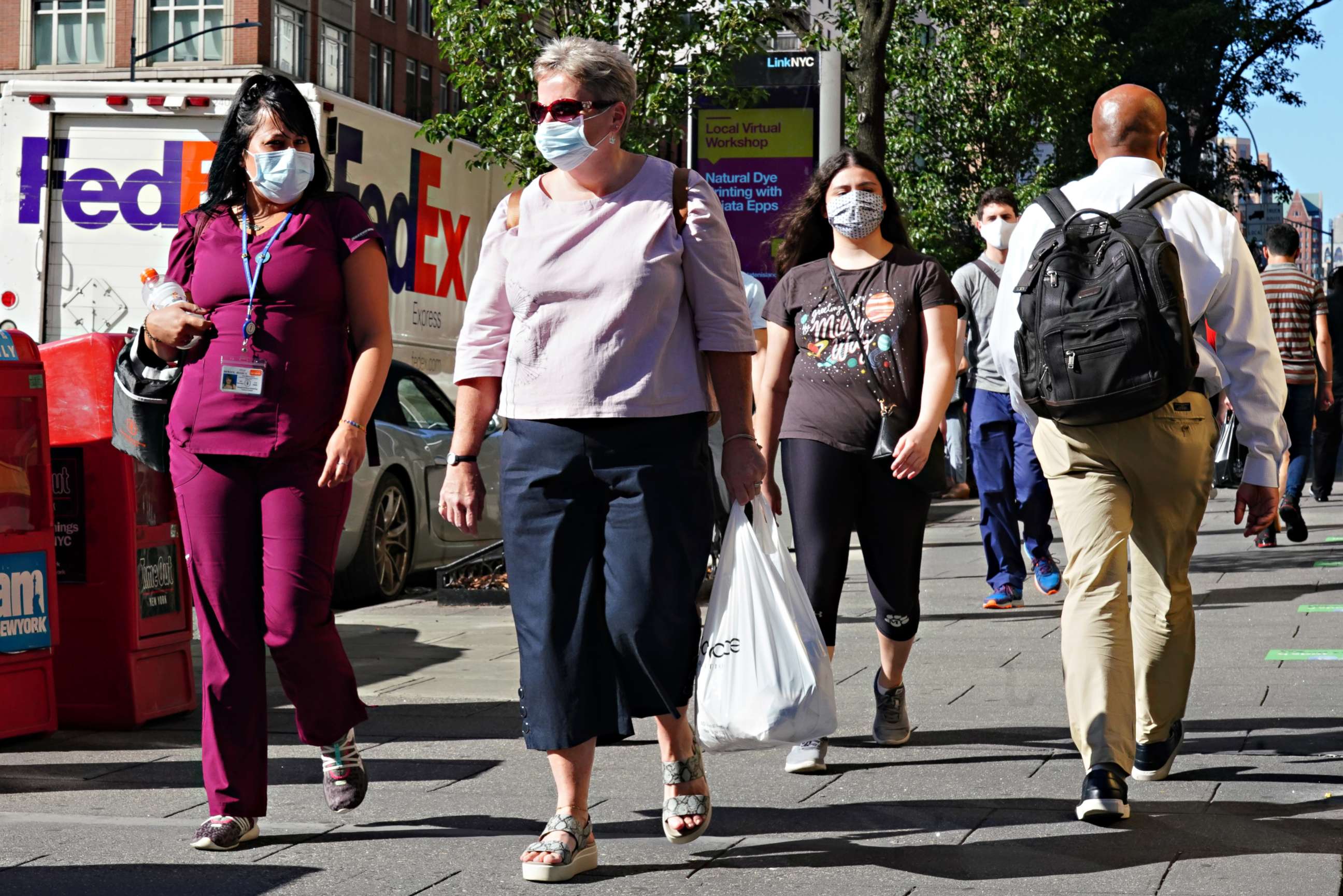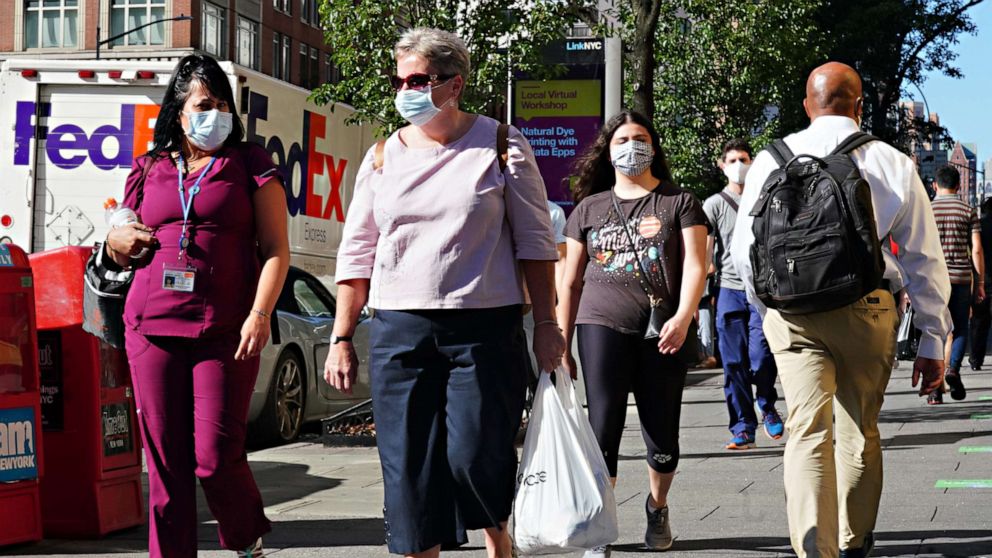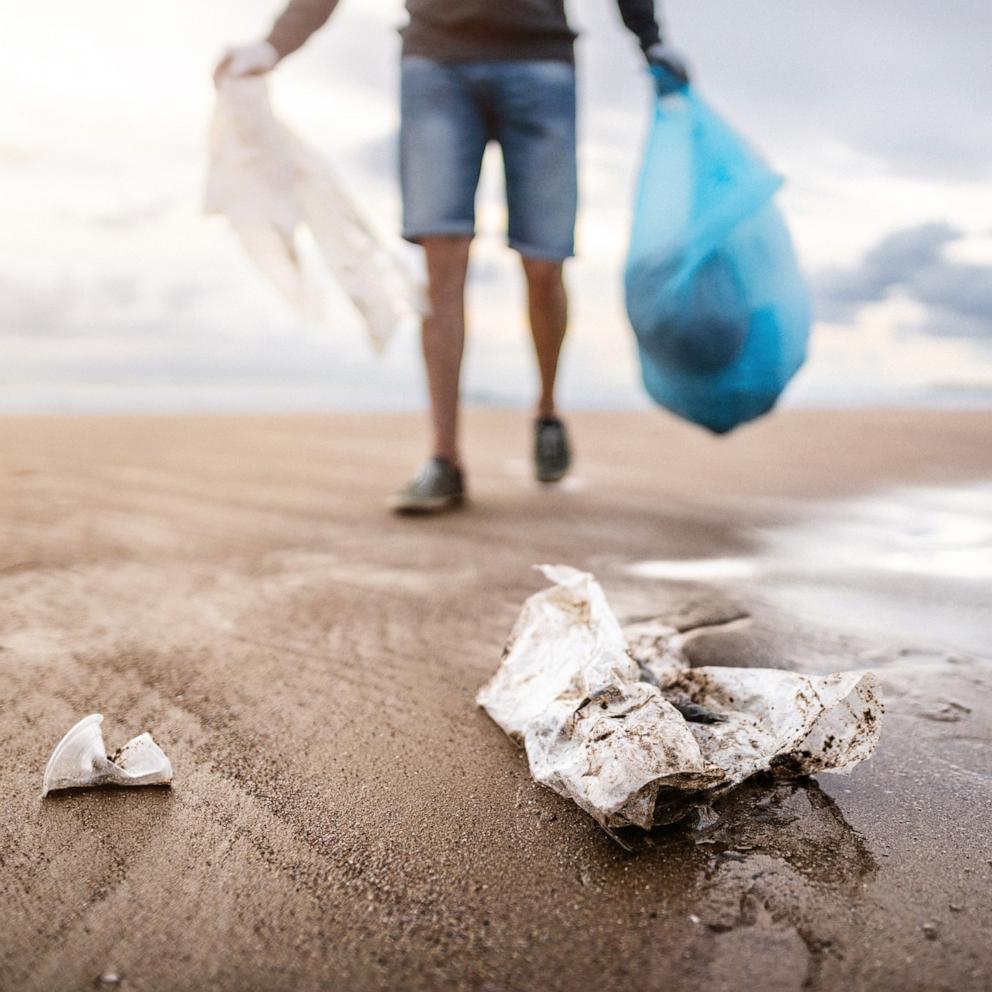Face masks with filters add another layer of protection, experts say
As more states make wearing face coverings in public mandatory, many wonder if masks with filters are more effective.
"Any cloth mask is going to protect others from whatever secretions you might inadvertently have," Dr. Marty, a professor of infectious diseases at Florida International University told "Good Morning America." "But if you add that filter, then you're also adding a really good protection for yourself."

Filters, which are essentially another layer that goes underneath a mask, can either be pre-sewn onto a mask or manually inserted via a pocket.
Although the Centers for Disease Control and Prevention currently have no formal recommendations on the use of filters in homemade masks, researchers have tested the efficacy of several commonly found materials. There is some data to suggest that items such as paper coffee filters or paper towels may be helpful in the filtration of particles, but humid condition can make these items less effective and make it harder for the wearer to breathe.
Mask-wearers should also avoid furnace filters, which can be made of cotton, fiberglass or polyester, and HEPA vacuum bag filters, which can pose a danger to wearers because they may contain microscopic glass particles that can cause severe lung damage.
To help make the mask selection process a little easier, "GMA" spoke with Dr. Monica Gandhi, a professor of medicine at the University of California, San Francisco, and Dr. Marty, a professor of infectious disease at Florida International University. Both doctors shared their expert advice on filters and more.
Read on for some of their top tips to help you find the best mask for yourself.
What kind of mask should I wear?
Dr. Gandhi: Full masks protect you. It's true that certain masks may filter out more or less viral particles, but cloth masks or surgical masks all filter out a majority of our particles. And how that protects you is, even if you're exposed to disease, you're very likely to get very mild or an asymptomatic infection. We don't have to focus too much on what kind of masks. Just wear a mask.
What makes a good mask?
Dr. Marty: The ideal cloth masks that you really want to have is one that has three layers. So you have an inner layer, you've got the filter layer and you've got your outer layer. And you've got nice straps and then you've got some kind of a wire to help you adjust your nose. You put in a fresh filter and you just strap it on, adjust it for comfort and there you go.
Dr. Gandhi: Comfort is the name of the game. You want it to be actually fitting. And by what that I mean is, I really do recommend the [masks with] ear loops because ear loops allow it to be tight-fitting. You should feel comfortable but there's nothing dangerous about wearing a mask.
Should I wear a mask with a filter?
Dr. Marty: Filters are going to give you increased protection from the mask. The wonderful thing about filters is that it isn't just about the size of the filter, but they have a charge to them that helps collect the COVID-19 virus and keeps it from going beyond that filter layer.
How often should I change or clean my filters?
Dr. Marty: I change out my filters frequently. You should replace that filter after the second or third time and wash it.
Dr. Gandhi: What a lot of people don't like about the mask is if you wear stuff on your face and you eat and then it can get gross, so I absolutely recommend a cloth mask with the filter, if you choose to use a filter. And wash it out every night.




